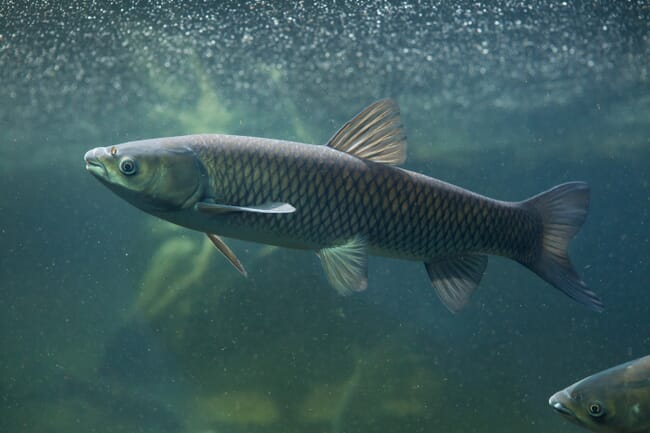
The World Wildlife Fund (WWF) and Freshwater Select, in collaboration with industry partners, have launched the Invasive Carp Consortium (ICC) which aims to utilise market forces to halt the damage caused by invasive carp to U.S. lakes and rivers. By increasing the demand for carp products as a food source for both humans and animals, the ICC aims to reduce the abundance of the invasive species, and counteract its environmental damage while contributing to a circular economy.
The now invasive carp species were originally introduced into the U.S. as a novel tool for pond cleaning, but have since infested and overwhelmed river systems in the American Midwest. Outcompeting native species, the proliferation of invasive carp poses a threat to river and lake ecosystems through intra-specific resource competition and habitat alteration.
“Over the years there have been several invasive carp eradication programs, but these fish continue to spread like a plague throughout our waterways,” said Ellen Dierenfeld, who leads sustainable feed innovation at WWF, in a press release announcing the Consortium.
“By developing market demand for enhanced carp products for human and animal feed, we create viable options for harvesting these fish on a large scale, adding to the blue economy as well as food system circularity. And we also alleviate some of the adverse environmental effects of traditional livestock, aquaculture, and animal feed production,” she explained.
The Consortium focusses not only on the environmental benefits of the removal of invasive carp from US waterways, but also on the socio-economic potential of the species as a quality food source.
“Everyone benefits here. With this level of industry collaboration and support, fishers will be able to harvest carp more safely and responsibly, processors will have access to a longer-term supply of high-quality carp, and companies can support a critical environmental initiative by purchasing it,” said Matthew Sulkowski, chief executive officer at Freshwater Select.




